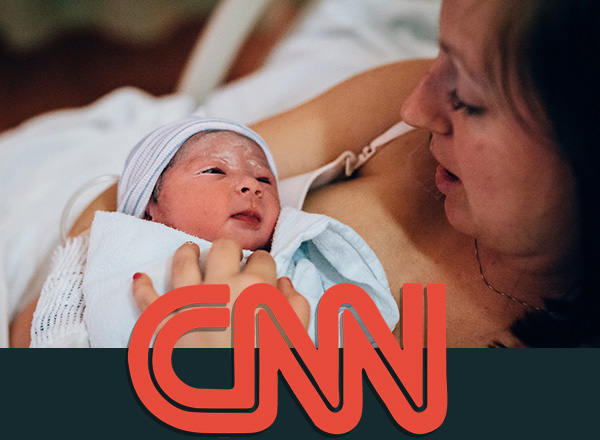Age & Fertility Loss
Can you explain why it is harder for a woman to get pregnant as she gets older? Is an older egg simply harder to fertilize, but would develop normally if fertilized? Or are the eggs not harder to fertilize, but more likely to develop abnormally and so fail to implant? In other words, is the mechanism that explains higher birth defects with age the same as that which explains lower fertility? M.
This is an interesting question and addresses an area where much research is being carried out. The adverse effect of age does not appear to be mediated by a decrease in "fertilizability," but rather seems related to abnormal chromosomes in the egg.
Let's go back to review how the egg forms. All human cells other than sperm and egg normally have 46 chromosomes. The egg and sperm each contribute 23 chromosomes to the developing fetus. This means that as the egg and sperm are formed, the number of chromosomes needs to reduced to 23. This process of chromosome reduction is called meiosis.
In men, the process is ongoing, and new sperm are continually being produced. In the woman, the situation is a bit different. Before her birth, while she is still an embryo, the number of her eggs increases up to about 4-7 million. After about 20 weeks of gestation, her fetal body stops producing new eggs. These eggs must also undergo the process of meiosis to reduce from 46 to 23 chromosomes. But at 20 weeks, the eggs are surrounded by an envelope of cumulus cells; this arrests the meiotic process and keeps the eggs healthy until they're needed for ovulation. An egg resumes its growth about three months before ovulation. In fact, meiosis is not actually completed until after ovulation and fertilization has occurred.
We know that older women ovulate eggs that are more likely to contain chromosomal abnormalities, such as extra or missing chromosomes. What we don't know is when this anomaly occurs. Does it occur while the eggs are dormant, in a state of suspended animation awaiting their chance to grow and ovulate? Or does it occur after hormonal signals involved in ovulation stimulate the egg to resume meiosis?
Researchers have hypothesized that perhaps the cumulus cells surrounding the egg lose their ability over time to maintain healthy eggs. Some believe that chemical abnormalities within the cell are responsible for errors in chromosomal reduction (meiosis), and that transfer of cellular material from a younger woman may resuscitate the egg. While initial studies have shown that this cytoplasmic transfer can be carried out and the egg can be fertilized and develop normally, the question of whether this corrects age-related defects has not been answered. Hopefully we will have answers in the next two or three years. A recent published report on this topic is available on the current research section of our website.
Also read

